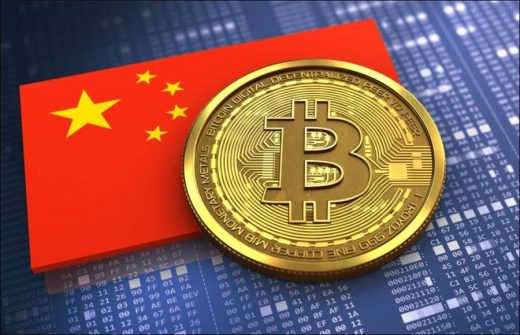Two weeks ago, Peter Thiel accused China of using Bitcoin as a financial weapon. This week, Xiaochuan Zhou and Bo Li, ex-governor and current deputy governor of the Central Bank of China respectively, after years of silence on Bitcoin, voiced their views on Bitcoin, the king of crypto.
Who knows how much Thiel’s argument led the Chinese government to re-evaluate its stance on digital assets? But that the government is more prone to talk about the matter at all, shows that they are more receptive to rethinking their antagonistic stance to crypto.
This week’s da bing digs beneath the political jargon, digests the Central Bankers’ conversation and tries to understand whether this is simply a friendly conversation among friends—or, a major bullish change in China’s perception of crypto.
Crypto as an “alternative investment”
Crypto operates in a grey zone in China. Over the years, it has figured out how to stay on the correct side of the red line that cordons off sensitive topics, such as capital outflow and internet gambling. Just look at Huobi and OKEx: Both operate an exchange business in a country that has banned ICOs and exchanges since 2017.
On April 18, both Zhou and Li participated on a panel discussing “Digital Payment and Digital Currency,” during which the moderator asked Li whether China will maintain an “iron wrist (铁手腕)” attitude toward crypto trading, Li, like the Central Banker he is, did not directly answer the question, which is significant. Instead, he called for more regulation. However, one point he made especially (and almost shockingly) clear was that Bitcoin specifically, and crypto in general, ought to be recognized as an “alternative investment vehicle.”
“Both Bitcoin and stablecoins are crypto assets,” and therefore ”are not currencies,” Li said. In other words, don’t treat this stuff like it’s money. It’s an investment class and “therefore should be regulated as an asset class,” he said, adding however that this “will not change the way we regulate it for now.” (My emphasis is on “for now.”)
Compared to the past few years when the government was reluctant to even mention Bitcoin and other crypto assets, this conference brought crypto to the forefront and gave the central bankers a platform to tell the world that it cares, too.
Crypto serving the real economy
Zhou, despite having left his job two years ago as the governor of the Central Bank, carries more authority among the two leaders. He emphasized that digital assets don’t directly benefit the Chinese economy as much as digital currency, because the former seems to be more of a financial game, while the later actually serves the real economy.
Interestingly, his tone was cautious—not pessimistic.
Zhou said: “Just like the financial crisis more than a decade ago, crypto could become a game between large financial institutions and end up having nothing to do with the real economy.”
Perhaps Zhou has studied yield farming like many of us and understands how crypto is still in the stage of recycling tokens from one farm to another? Regardless, his point was crystal clear: Not all digital assets are created equal, and those that serve as a speculative tool must be regulated—and punished, if done illegally.
Stablecoins should be regulated like banks
Li singled out stablecoins as a subset of digital assets. He noted that most stablecoins have real-world applications, such as payments, that could touch the lives of many. If they become more integrated with the economy, there has to be more stringent regulation.
Zhou has clearly done his stablecoin research and mentioned that stablecoins issued by private companies should be regulated in the same way as banks. Does that mean USDC could one day enter China and be regulated as a bank-grade financial institution? Obviously, he did not go there.
Regulating stablecoins? Not banning them outright? That this was even on the table was surprising. I had thought that the government would ban any token that it hadn’t sanctified and launched.. But seeing that they are open to the idea, rigorous regulations aside, makes me think that the government is considering testing what stablecoins can do for the economy.
The digital yuan
Lastly, the conversation could not finish without talking about China’s digital yuan. As the government increases its circulation, DCEP is poised to be China’s largest financial infrastructure roll out in 30 years. To echo the Digital Yuan’s philosophy, Zhou emphasized that “it doesn’t matter whether one is using digital assets or digital currency in their digital wallet. Most citizens don’t understand the backend complications and don’t care about decentralization either.”
Every citizen needs to know that they cannot use the new digital money to launder money, evade taxes, purchase weapons or gamble. In this way, it is like the U.S., too.
Bullish or just shooting the bull?
Even though the conversation appeared to be just a chat and the two Central Bankers were measured in their choice of words, the fact that they could openly discuss Bitcoin as an asset class and semi-show off their knowledge of stablecoins tells the world that China is thinking beyond its digital yuan.
It has always kept a close eye on the juicy stuff, especially now that Coinbase has gone public and many public-listed companies, such as Tesla, are buying into the asset class. The Chinese government simply cannot lag too far behind.
So let’s treat this conversation more as a somewhat snide response—“Thank you Peter Thiel for the show of love! Rest assured that we are closely monitoring the situation.”—than a specific, concrete policy change.
China is not sleeping through the crypto revolution. The fact that this conversation happened in public and raised a number of interesting questions in a fairly open way, showed that the government is still trying to get a handle on crypto. The current ban notwithstanding, crypto and how China deals with it, is very much a work in progress.
Visits: 121



